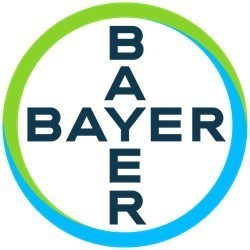HLB has been confirmed in 28 California trees, but diligence from growers, homeowners and industry leaders has so far prevented the disease from appearing in commercial orchards. "While every growing region has its unique set of challenges and legitimate concerns, the industry is united that stopping Asian Citrus Psyllid and HLB is the priority and certain mitigation activities must be taken to achieve the objective," said Alyssa Houtby, director of public affairs for CCM.
A number of California grower meetings were held in September and featured Florida growers as well as representatives from various disease control and citrus organizations. The key takeaway: The California Citrus industry must adjust the way it has been addressing the issue, and that means Asian Citrus Psyllid (ACP) presence equals HLB presence. The two can no longer be addressed separately.
"There's much we can learn from what our fellow growers in Florida have gone through in the last decade," said Steve Olson, Bayer product manager. "If we continue to work together on prevention, California citrus will be in a much better position to survive the threat of HLB."
While many of the Florida panelists have been able to continue farming after HLB devastation, it has come at a significant cost. They urged California growers to be diligent with preventive action to stop the spread. Growers in Florida have been spraying for psyllids up to 14 times per year, and they have found insecticides to be the best method to suppress the psyllid populations, which limits the spread of the vector and the infection levels of the bacterium that causes HLB.
One weapon Bayer can provide in the ACP fight is Movento®, an insecticide that has been proven to effectively control populations of ACP. Control of the citrus psyllid is currently the only practical way to stop the spread of HLB.
In 2015, Bayer and CCM launched the #CitrusMatters program to raise awareness of ACP and HLB with California homeowners so that they could increase their understanding about the devastating disease. Citrus Matters made a donation in the same year to help fund research at Cal Poly Pomona that focuses on psyllid control.
Earlier in 2016, Citrus Matters launched the Abandoned Citrus Tree (ACT) removal program. Monitoring residential trees is a critical line of defense since more than 60 percent of California homeowners have citrus trees in their yards. The ACT removal program allows growers to identify and request removal of abandoned trees that pose a threat to their groves.
Growers and homeowners are encouraged to share the hashtag #CitrusMatters to help continue the effort. The Citrus Matters website (CitrusMatters.us) is an informational resource for growers and homeowners. Visitors can use the site to identify an area for potential tree removal, get the latest news about citrus greening, find sharable images to use on social media, and more.
For more information about #CitrusMatters or Citrus Greening, visit www.CitrusMatters.us, or www.CACitrusMutual.com.
Bayer is committed to bringing new technology and solutions for agriculture and non-agricultural uses. For questions concerning the availability and use of products, contact a local Bayer representative, or visit Crop Science, a division of Bayer, online at www.cropscience.bayer.us.
Visit the Bayer Connect - Social Hub for social media, recent news, blog posts, videos and more from Crop Science, a division of Bayer.
Bayer: Science For A Better Life
Bayer is a global enterprise with core competencies in the Life Science fields of health care and agriculture. Its products and services are designed to benefit people and improve their quality of life. At the same time, the Group aims to create value through innovation, growth and high earning power. Bayer is committed to the principles of sustainable development and to its social and ethical responsibilities as a corporate citizen. In fiscal 2015, the Group employed around 117,000 people and had sales of EUR 46.3 billion. Capital expenditures amounted to EUR 2.6 billion, R&D expenses to EUR 4.3 billion. These figures include those for the high-tech polymers business, which was floated on the stock market as an independent company named Covestro on October 6, 2015. For more information, go to www.bayer.com.
Forward-Looking Statements
This release may contain forward-looking statements based on current assumptions and forecasts made by Bayer Group or subgroup management. Various known and unknown risks, uncertainties and other factors could lead to material differences between the actual future results, financial situation, development or performance of the company and the estimates given here. These factors include those discussed in Bayer's public reports which are available on the Bayer website at www.cropscience.bayer.us. The company assumes no liability whatsoever to update these forward-looking statements or to conform them to future events or developments.
© 2016 Bayer CropScience LP, 2 T.W. Alexander Drive, Research Triangle Park, NC 27709. Bayer, the Bayer Cross, and Movento are registered trademarks of Bayer. Always read and follow label instructions. For additional information call toll-free 1-866-99-BAYER (1-866-992-2937) or visit our website at www.cropscience.bayer.us.
Photo - http://photos.prnewswire.com/prnh/20161014/428832
Photo - http://photos.prnewswire.com/prnh/20161014/428830
Photo - http://photos.prnewswire.com/prnh/20161014/428831
Logo - http://photos.prnewswire.com/prnh/20140312/NY79226LOGO
SOURCE Bayer
Related Links
http://www.bayerus.com




Share this article